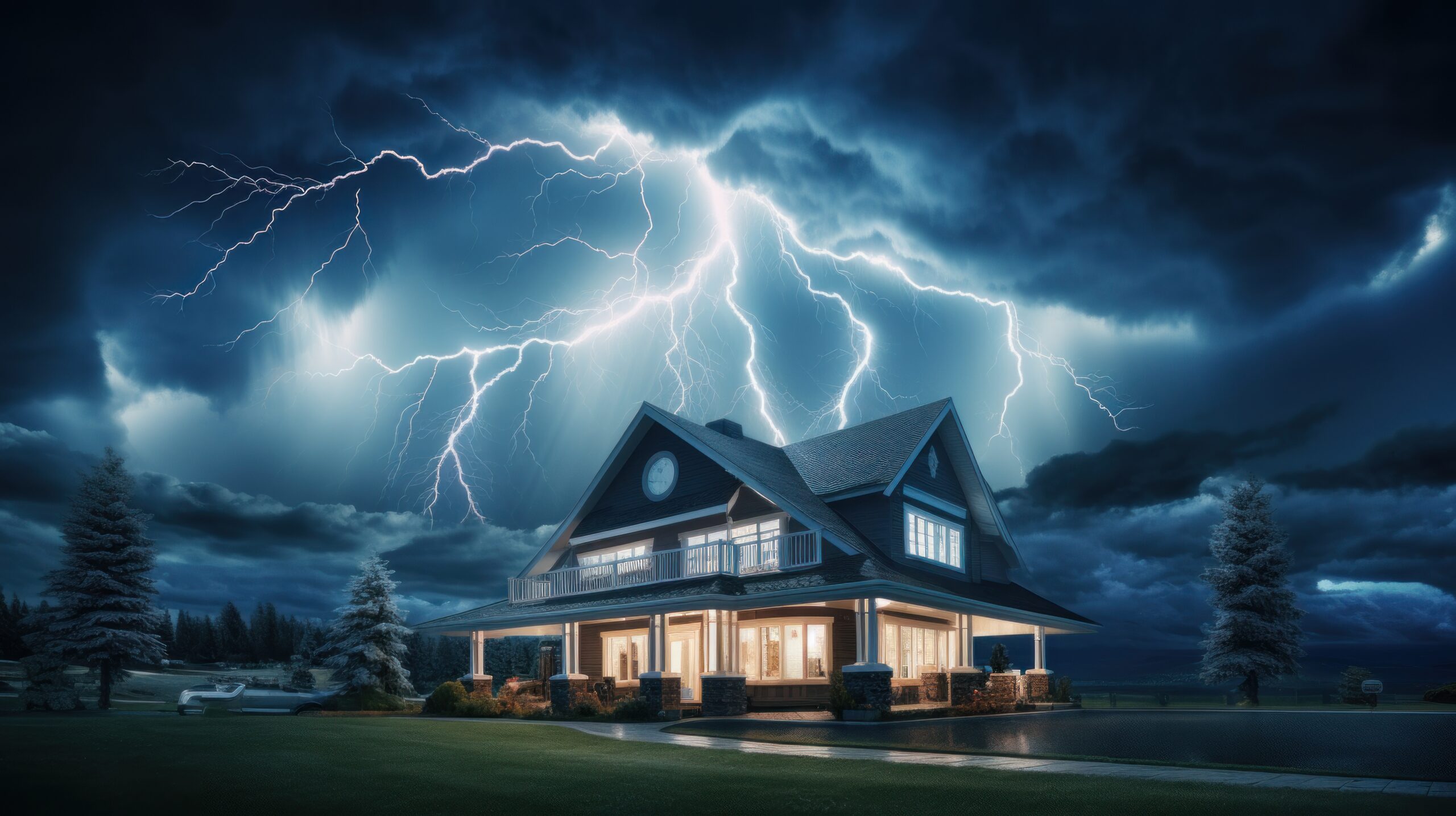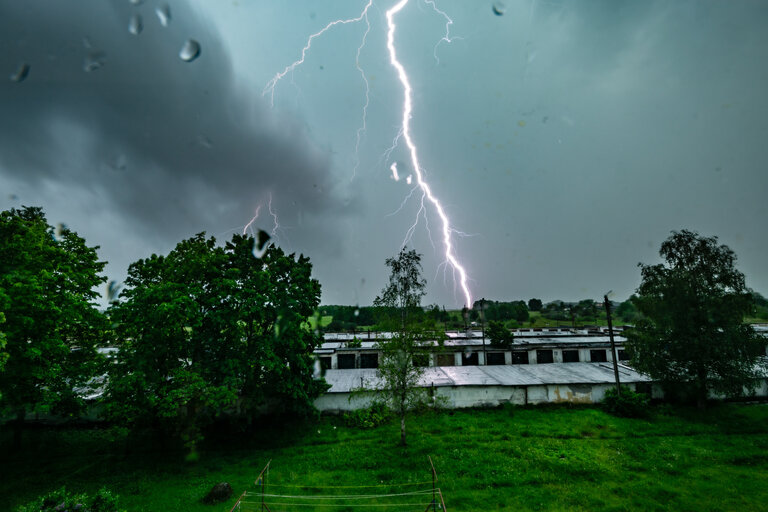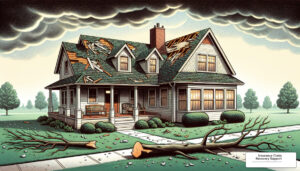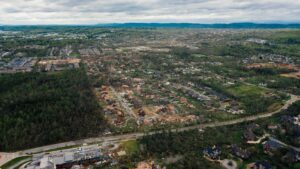We settle large-loss lightning damage insurance claims
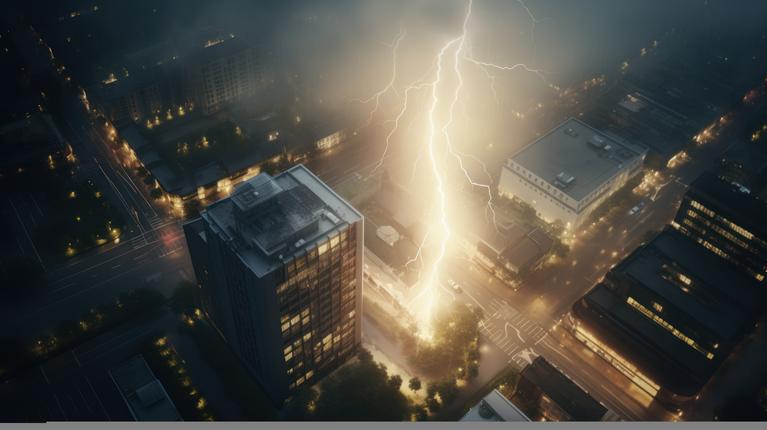
LIGHTNING DAMAGE INSURANCE CLAIMS
Trust ICRS public adjusters to settle your lightning property damage insurance claim
When lightning has devastated your property, call ICRS public adjusters to settle your lightning claim. We can help you put the pieces back together.
- Commercial Property Lightning Claims
- Multi-Family Property Lightning Claims
- High-Value Homes & Real Estate Lightning Claims
Public Adjuster for LIGHTNING Claims
Lightning Damage Insurance Claims
Are you dealing with the aftermath of a lightning strike on your commercial property, multifamily residence, or high-end custom home? Let our experienced team of public adjusters handle your insurance claim efficiently and effectively.
At Insurance Claim Recovery Support public adjusters, we specialize in lightning damage insurance claims for various property types, including:
- Commercial Buildings: From office buildings to retail spaces, we understand the unique challenges businesses face when dealing with lightning-related damages. Our experts will ensure that your claim is meticulously documented and accurately valued, maximizing your recovery.
- Multifamily Properties: Lightning strikes can cause significant damage to multifamily homeowner associations and apartment complexes, affecting multiple units and common areas. Our team has the expertise to navigate complex insurance policies and advocate for fair settlement on behalf of policyholders.
- High-End Custom Homes: Luxury properties require specialized attention and detail-oriented approach when it comes to insurance claims. We have a proven track record of successfully representing owners of high-end custom homes, ensuring that every aspect of the damage is thoroughly assessed and accounted for in the claim.
Costliest types of lightning damage to commercial buildings and multifamily apartments
The costliest forms of lightning damage to commercial buildings and multifamily apartments typically include:
Structural Damage: Lightning strikes can cause significant structural damage to buildings, including roof damage, weakened foundations, and structural fires. Repairing or replacing these structural elements can be expensive and time-consuming.
Electrical Systems Damage: Lightning can surge through electrical systems, damaging wiring, circuits, transformers, and electrical appliances. This can result in costly repairs or replacements of electrical infrastructure and equipment throughout the building.
Fire Damage: Lightning strikes can ignite fires in commercial buildings and multifamily apartments, leading to extensive damage to property and assets. Fire damage can be particularly costly, requiring repairs to structural elements, contents, and utilities.
Water Damage: Lightning strikes can puncture roofs or cause other structural damage, leading to water leaks and subsequent water damage within the building. Water damage can affect multiple floors or units, requiring extensive cleanup, repairs, and restoration efforts.
Data and Technology Loss: Lightning-induced power surges or direct strikes can damage or destroy sensitive electronic equipment such as computers, servers, security systems, and communication devices. Recovering or replacing these systems can incur significant costs.
Business Interruption: Lightning damage can disrupt business operations and tenant livelihoods, resulting in lost revenue, rental income, and productivity. Business interruption insurance may help cover these losses, but the impact on cash flow and operations can still be substantial.
Tenant Displacement and Liability: Severe lightning damage may render commercial spaces or multifamily units uninhabitable, leading to temporary displacement of tenants and potential liability issues for property owners. Providing alternative accommodations and addressing liability claims can add to the overall cost burden.
Addressing these costly forms of lightning damage promptly and effectively is essential for minimizing financial losses and ensuring the safety and well-being of occupants in commercial buildings and multifamily apartments.
Maximizing Your Lightning Damage Insurance Claim with ICRS
When dealing with insurance claims for lightning damage in commercial or multifamily buildings, choosing ICRS Public Insurance Adjusters can greatly impact the results of your claim.
Discover the advantages of engaging ICRS Public Insurance Adjusters, the optimal timing for their services, and the crucial role they play in ensuring proper representation throughout the claims process.
When to Hire ICRS Public Insurance Adjusters
When should a policyholder hire a public adjuster?
The best time to hire ICRS Public Insurance Adjusters is at the beginning of the claim process. Doing so ensures that your claim is documented properly, helping you get a fair and prompt settlement.
- Expertise: Our team consists of seasoned public adjusters with extensive experience in handling lightning damage insurance claims. We understand the nuances of insurance policies and leverage our knowledge to your advantage.
Dedicated Support: From the initial assessment to the final settlement, we provide personalized support and guidance every step of the way. You can trust us to be your advocate throughout the claims process.
Maximized Recovery: Our goal is to maximize your insurance recovery and expedite the claim resolution process. We work tirelessly to ensure that you receive fair and prompt compensation for your lightning-related damages.
Transparent Communication: We believe in transparent communication and keep you informed about the progress of your claim. You can rely on us to answer your questions promptly and provide updates as needed.
Benefits of Hiring ICRS Public Insurance Adjusters
- Time and Money Savings
- Ensuring Proper Interpretation of Policy Language
- Access to Professional Opinions and Resources
- Support in Navigating Bad-Faith Insurance Practices
- Streamlined Claim Process and Documentation
- Skilled Negotiation for Large Loss Insurance Claims
Free Lightning Insurance Claim Evaluation
ICRS offers a complimentary lightning consultation, report, policy review, and building inspection to help you assess the potential damage and validity of your claim. Click here to get started.
Leveling the Playing Field with Your Insurance Company's Adjuster
By hiring ICRS Public Insurance Adjusters, you ensure that you have experienced professionals working exclusively in your best interests, leveling the playing field against the insurance company’s adjuster.
We hold HAAG Commercial Roof Inspector and IICRC WRT certifications in addition to public adjuster licenses in multiple states.
ICRS routinely settles complex lightning damage insurance claims. If you own or manage an HOA, Multifamily apartment complex, food plant, storage facility, high-value home, or other commercial property, you’re no stranger to risk management. When your real estate asset suffers a lightning damage insurance claim, managing risk and knowing your policyholder rights is critical to getting the fair and prompt settlement you deserve.
Large Commercial and Multifamily lightning damage insurance claims can be complex, time-consuming, frustrating, and expensive if you don’t have professional guidance and representation. Know your rights and know your settlement options.
You wouldn’t hire the I.R.S. to prepare your tax returns so why allow your insurer to prepare your insurance claim?
Non-Litigious Approach to Settling Insurance Claims
ICRS takes a non-litigious approach to settling insurance claims, helping commercial and multifamily policyholders receive fair settlements while avoiding unnecessary litigation and appraisals.
Re-opening and Supplementing Underpaid Claims
If you are dissatisfied with your insurer’s settlement offer, ICRS can re-open and supplement your claim to help you receive the fair and prompt settlement you deserve.
Lightning Damage Claims
Dealing with lightning damage insurance claim can be a daunting process. However, by hiring ICRS Public Insurance Adjusters, you can maximize your claim, save time and money, and ensure that your interests are protected. Contact ICRS today at 832-725-2878 to get the fair and prompt settlement you deserve.
Reasons why insurers deny or underpay insurance claims for lightning damage
Reason 1: Insufficient documentation
Reason 2: Policy Exclusions
Reason 3: Disputes Over Cause
- Don’t let this happen to you! Take action now and protect your home or business. To ensure that your lightning claim is not denied or underpaid, it is important to have a detailed record of all damages, maintenance and repairs, including photos, dates, and descriptions. Additionally, it is important to thoroughly read and understand the language of your insurance policy to ensure that you are aware of any exclusions or limitations that may apply.
Numerous factors affect how an insurer covers lightning events. Some of these include the property’s age, type, quality, condition, and supporting materials.
What are common reasons why insurers deny or underpay lightning damage insurance claims?
There are several common reasons why insurers may deny or underpay lightning damage insurance claims:
- Damage not meeting the deductible: Many insurance policies have a deductible that must be met before the insurance company will pay for any damages. If the cost of the repairs is less than the deductible, the insurance company will not pay out the claim.
- Pre-existing damage: Insurance companies may deny claims for damage that was present prior to the storm. Policyholders need to have a clear understanding of the condition of their property prior to filing a claim.
- Failure to maintain the property: Insurance companies may also deny claims if the Policyholder has not properly maintained the property.
- Age of the roof: Insurance policies may have restrictions on coverage for older roofs. If the roof is past a certain age, the insurance company may only pay for a partial replacement, rather than a full replacement.
- Dispute over the cause of the damage: Insurance companies may dispute the cause of the damage, especially if there were other factors at play, such as poor installation, deferred maintenance, improper installation, or inadequate ventilation.
- Incomplete or inadequate documentation: Insurers require detailed documentation of the damage, including photographs and repair estimates, to support the claim. Failure to provide sufficient documentation can result in a denial or underpayment of the claim.
It is important for home and business owners to review their insurance policies carefully and to work with an experienced contractor to ensure that all necessary repairs are documented and completed to the insurer’s satisfaction.
- Pre-existing Damage: Insurers may deny claims if they suspect that the damage existed before the lightning strike occurred. They may argue that the damage is not directly attributable to the lightning and therefore not covered by the policy.
- Dispute Over Cause: If there is uncertainty about whether the damage was caused by a lightning strike or by another factor, insurers may deny or underpay the claim until the cause is clarified.
- Failure to Notify: Policyholders are typically required to notify their insurer promptly after the incident occurs. Failure to report the lightning damage within the specified time frame may result in claim denial.
- Policy Limits: The amount of coverage provided by the insurance policy may not be sufficient to cover the full extent of the lightning damage. In such cases, the insurer may underpay the claim up to the policy limit.
- Coverage Gaps: If there are gaps or inconsistencies in the coverage provided by the insurance policy, insurers may deny or underpay claims for lightning damage that fall outside the scope of coverage.
- Fraudulent Claims: If the insurer suspects that the claim is fraudulent or has been exaggerated, they may deny the claim and potentially pursue legal action against the policyholder.
- Policy Lapses or Non-Renewal: Claims filed after the policy has lapsed or after the insurer has decided not to renew the policy may be denied.
- Inaccurate Application Information: If the insured provided inaccurate or incomplete information on the insurance application, the insurer may deny the claim based on misrepresentation.
It’s important for policyholders to thoroughly review their insurance policies, document damages effectively, and communicate promptly with their insurer to avoid claim denial or underpayment. Consulting with a public adjuster or legal expert may also be beneficial in disputed claim
When filing your commercial or multifamily building lightning damage insurance claim, Policyholders need the evidence necessary to support all damages. Insurance Claim Recovery Support helps policyholders document damages and negotiate the insurance policy benefits they have paid for.
Years Experience
Claims Settled
Hours Worked
Average Claim Amount
Risk-Free Loss Recovery Offer
Get a complimentary consultation on your lightning damage insurance claim. We are public insurance adjusters who work for policyholders, not the insurance company. If you choose to hire us, we work on contingency. No recovery, no fee. Our lightning insurance claim process is proven and streamlined. We also value your privacy. We do not sell, trade, or rent your personal information to others.
Need immediate lightning damage insurance claim help?
TESTIMONIALS
What Client Says About ICRS
It pays to know ICRS – “747% Higher Payments with a Public Adjuster for Claims related to a 2005 Hurricane”
Frequently Asked Questions
What is a public adjuster and what do they do?
When should I hire a public adjuster?
How are public adjusters compensated?
How do public adjusters differ from insurance company adjusters?
Do I need a public adjuster if I already have an insurance agent or broker?



